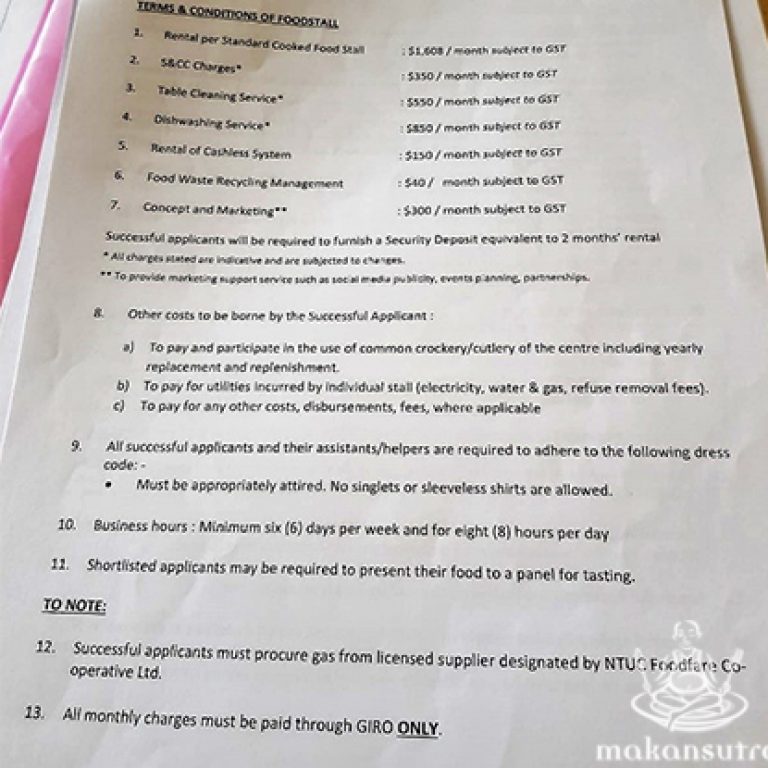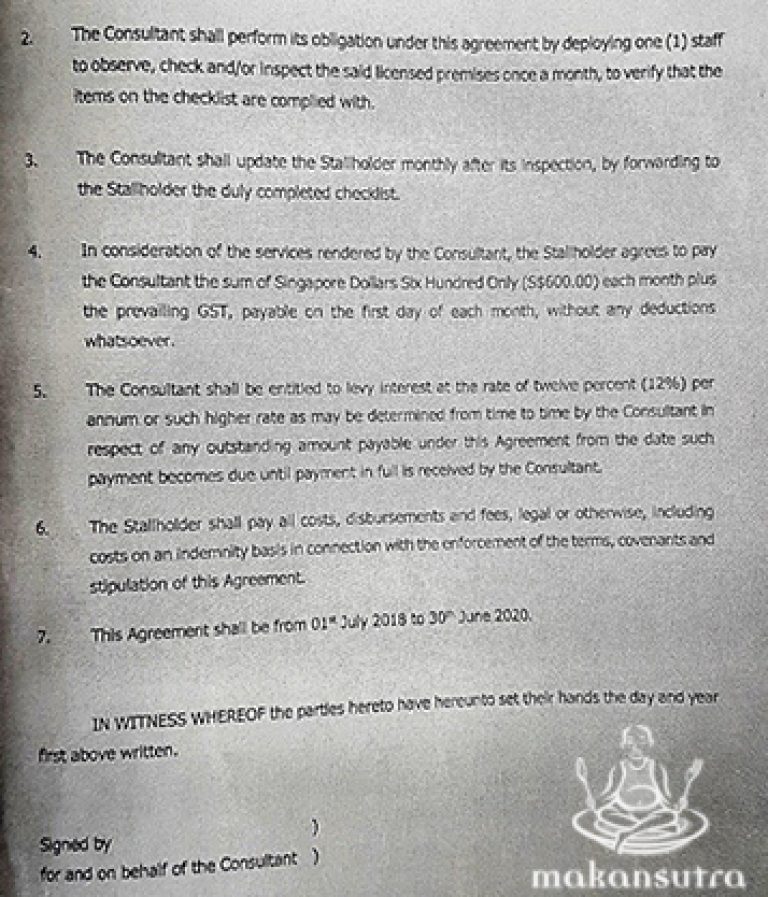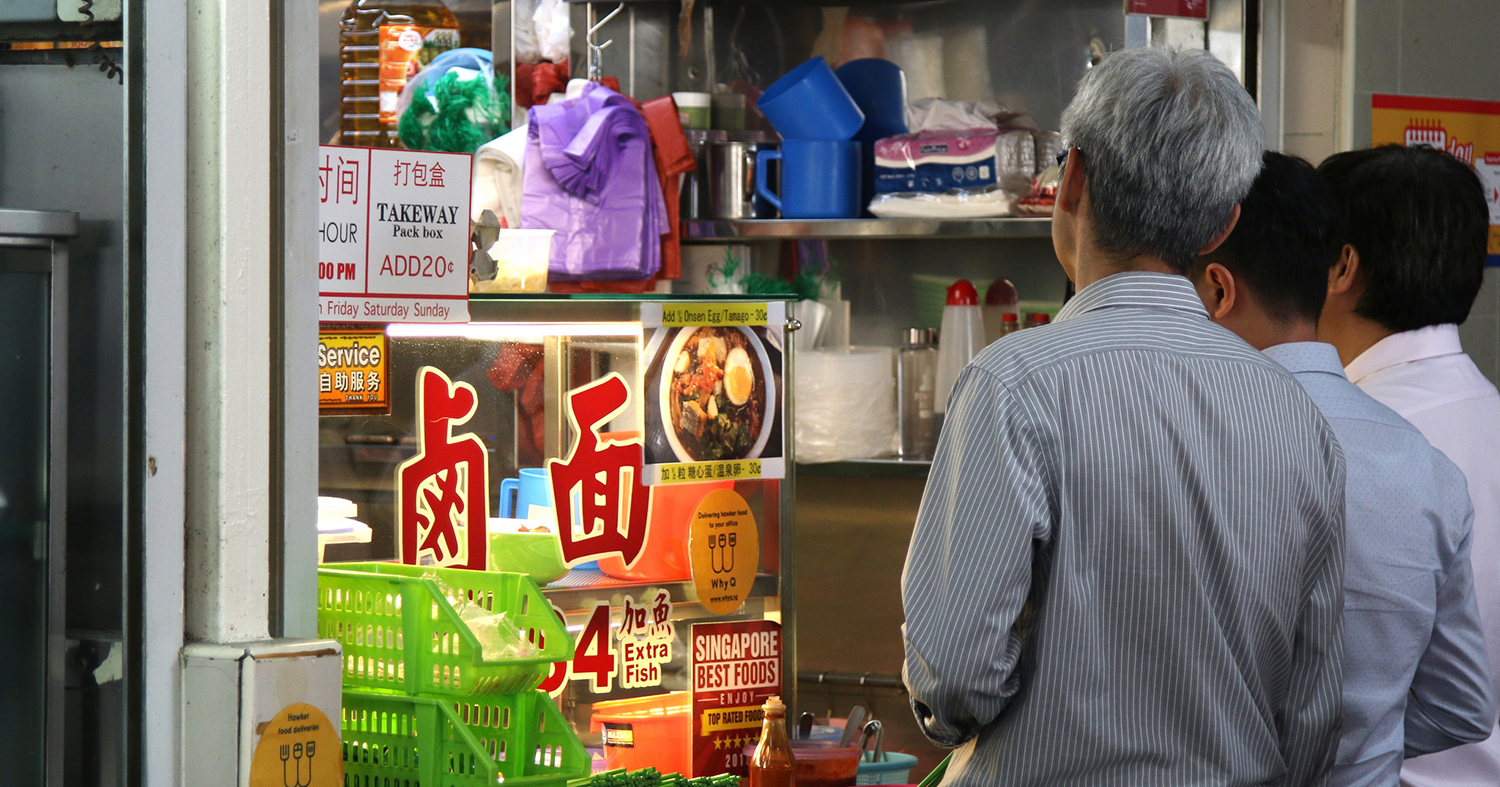If you've been following the news about social-enterprise hawker centres, you would know that a number of the hawkers selling food there are disgruntled by the way they are run by private enterprises.
One of the common complaints was that these private operators charge hawkers extra fees on top of the rental. In some cases, the total amount paid by the hawker to the operator can be twice the original rental fee.
One hawker told Channel NewsAsia that his monthly stall rental at a social enterprise hawker centre is S$2,000, but because of the accumulated service fees, he ends up paying close to S$4,000.
In comparison, hawkers at Maxwell Hawker Centre — a prime location in the Central Business District — pay about S$2,000 to S$3,000 per month in total.
Since NEA has a bidding system for NEA-run hawker centres, some hawker rentals can be as low as S$8 per month.
[related_story]
Questions asked by WP NCMP Daniel Goh
This issue was brought up in Parliament on Monday, Oct. 1, by Workers' Party NCMP Assoc Prof Daniel Goh Pei Siong. He asked the following:
- If the Ministry for Environment and Water Resources has been conducting audits on social enterprises managing hawker centres to prevent the use of hidden fees and charges, and
- What level of surplus of income is deemed acceptable for these social enterprises.
Amy Khor reply: Operating costs "significantly lower" than food courts and coffee shops
In her reply, Senior Minister of State for the Environment Amy Khor said NEA ensures that rental and operating costs for essential services are kept "reasonable".
She added that the agency considers rental and operating costs when evaluating tenders submitted by private operators:
"One key tender evaluation criteria when evaluating bids from potential operators is the rental and operating costs that the operators will charge stallholders. Operators who propose lower rentals and operating costs will be considered more favourably, and they are not permitted to vary these charges over the term of the tenancy."
Khor also said that all operating charges must be made known to hawkers before they sign the tenancy agreement. Any changes to the charges, including optional charges for value-added services, must be made known to NEA for approval before implementation.
Social enterprise hawker centres are known to have extra "value-added services". Food consultant KF Seetoh previously revealed that this includes cashless payment systems (which hawkers have to rent), concept and marketing fees, and coin changing services.
 Extra charges that are to be paid by stallholders, including stall rental. Via Makansutra.
Extra charges that are to be paid by stallholders, including stall rental. Via Makansutra.
Accordingly, Khor rationalised that such measures "limit the potential profits" of operators, and keep rental affordable for hawkers:
"Today, the stall rentals together with operating costs at our new hawker centres are significantly lower than those in comparable food courts and coffee shops."
It isn't completely clear if Khor was also referring to hawker centres, though.
When Goh further questioned if NEA was aware of the extra costs imposed by operators on hawkers, Khor, in referring specifically to the extra S$600 spot check fee by Fei Siong, noted that the operator had said that the fee is optional, despite reports from Channel NewsAsia citing hawkers who said it was "compulsory".
 Contact agreement posted by Seetoh. It states that the stallholder has to pay the operator S$600 every month. Via Makansutra.
Contact agreement posted by Seetoh. It states that the stallholder has to pay the operator S$600 every month. Via Makansutra.
According to Khor, out of the 40-plus stallholders at the Fei Siong-run Ci Yuan Hawker Centre, nine of the non-EP stallholders were paying the S$600 spot check fee.
She further iterated that all mandatory charges must be declared to hawkers upfront before they sign any agreements and all extra charges "that will impact on cost" after the agreement are subject to NEA's approval.
In response to Goh's question about whether it audits the fees levied by hawker centre operators, Khor said NEA sends "place managers" to visit the hawker centres on a weekly basis "to carry out checks" on defects, cleanliness, and to engage hawkers. Hawkers can approach these place managers if they have pertinent issues to address.
Khor said that the government will continue to "refine and improve" this management model so that hawker centres can continue to provide a social good as well as provide a decent livelihood for hawkers.
Related stories:
Top image by Joshua Lee
If you like what you read, follow us on Facebook, Instagram, Twitter and Telegram to get the latest updates.
